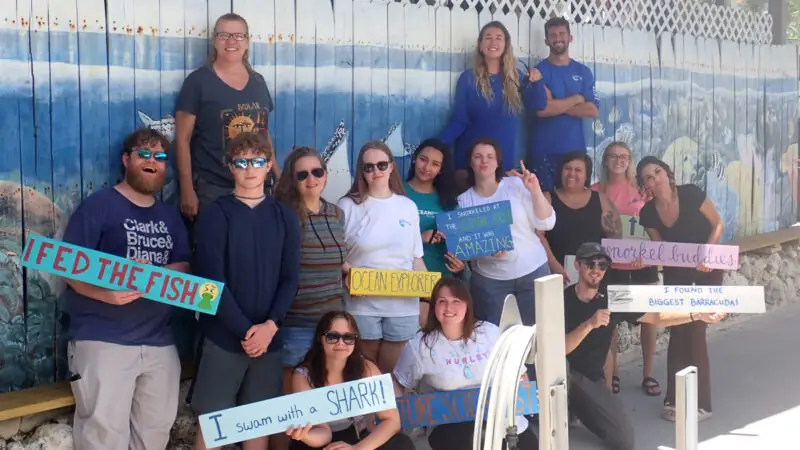Polk State receives historic NSF grant to bolster STEM opportunities

Thanks to a historic grant, Polk State College is on the verge of taking its Science, Technology, Engineering and Mathematics (STEM) curriculum to a whole new level.
For the first time in the College’s history, Polk State is the primary recipient of a National Science Foundation grant. The $494,795 grant will fund Polk State’s Activating STEM Skills and Efficacy for Transfer (ASSET) project, which will enrich STEM curriculum and create more hands-on learning opportunities.
“The goal is to get students out of just the textbook and into the fields to get their hands dirty, so to speak,” said Erin Martinez, Director of Grants Development and Administration for Polk State’s Institutional Research Effectiveness & Planning Department. “This is a very big deal for us.”
Awarded over three years, funds became available on Oct. 1. The grant will serve a minimum of 200 students.
“In the upcoming decade, we’re projected to have a shortage of scientists, especially the geosciences,” said KT Moran, Professor of Earth Science. “These are great paying jobs and this is work that affects our daily lives. Many university science departments are now dominated by students who transferred from two-year colleges. That puts the onus on us to make sure our students leave here prepared.”
Moran and Bert Rivera-Marchand, Dean of Academic Affairs, are the Principal Investigators – or primary overseers – of the ASSET project. The funding will allow the College to create a part-time position to manage the STEM Club. It will also pave the way for students to conduct undergraduate research and attend conferences.
“The data says that those who pursue STEM degrees like to have a sense of belonging on campus,” Moran added. “Since COVID, campus life has taken a bit of a hit. Our science departments have remained active. We have study abroad and research programs in place. This will provide even more exposure.”
Among the hands-on learning opportunities will be annual trips to Mote Marine Laboratory & Aquarium in Sarasota and Key Largo. At Mote Marine Lab, students will have lunch with a scientist and participate in an activity in the water. In Key Largo, they’ll participate in reef restoration and water analysis.
“We want to deepen students’ STEM experience and engagement through experiential learning, faculty mentoring and extracurricular opportunities,” Rivera-Marchand exclaimed. “The goal of this project is to equip undecided students with technical skills, confidence and resources needed to pursue STEM academic and career pathways.”
Polk State learned in September that it had received the grant. The ASSET project planning and application process was a collaboration among Rivera-Marchand, Moran and Martinez.
“It was a great group effort,” Moran reflected. “The three of us worked really well together. We made a great team.”
Moran expects the impact of ASSET to go beyond the three-year grant window. She hopes that it will lead to partnerships with universities and thinks it could be a model for STEM curriculum across the nation.
“Universities are very interested in FUSE programs (that provide students with a pathway to earn both an associate and bachelor’s degree),” Moran concluded. “There is potential to grow this beyond Polk State and maybe beyond Florida.”

